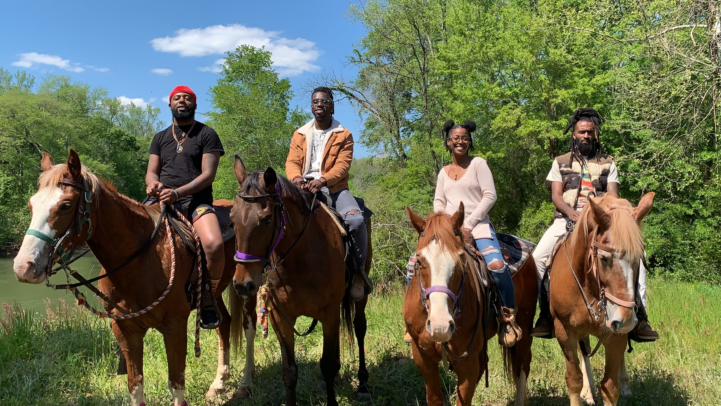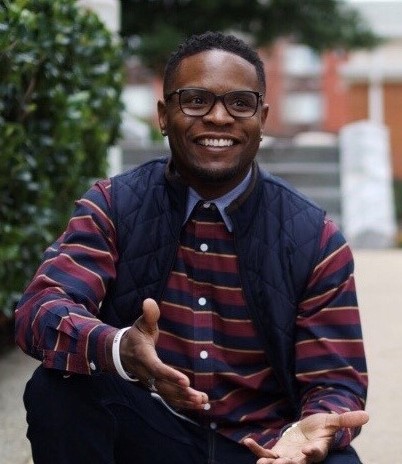When Genuwine released his 1996 classic, Pony, no one likely had mental health and therapy in mind. Well, maybe that depends on how one defines therapeutic tools. In any regard, horse therapy (professionally known as Equine-Assisted Therapy) is a practice where horse and pony rides improve communication skills, self‐awareness, confidence-building, and self‐control through interaction.
Daryl Fletcher, owner and founder of SOOFA (Stretch Out On Faith Again) Ranch, is a part of the movement and wants everyone to know its benefits.
“Horses are for more than cowboys,” he told AfroTech.
It Was All A Dream
Fletcher is a retired youth pastor who has always loved horses. He worked with troubled youth in this role and wanted to create an alternative to the prison pipeline. With that desire to override adverse outcomes developed by the judicial system, he thought riding horses and training would help to build character.
While establishing SOOFA was a dream come true, it was no easy feat.
Riding horses since the age of seven, his father introduced him to the equestrian lifestyle. From that initial point on the horse ranch, Fletcher’s life changed.
“I was afraid of everything, and one day my father told me to grab some clothes that could get dirty and let’s go. He took me to a horse ranch, and all my fears suddenly went away. It changed my life,” Fletcher explained.
Although his father passed away soon after that moment, his love for horses never disappeared. Describing each experience as liberating and freeing, Fletcher wanted to make sure the world could experience this same freedom.
Tough Times Don't Last
When he became a youth pastor in the Maryland area, he went through a divorce and faced financial hardship. Looking for ways to help provide for his children (who now lived in a separate state), and needing a place to stay, Fletcher took to Craigslist to find work.
Upon his search, he found an ad that offered interested parties free housing in exchange for helping to take care of and maintain horses.
“The owner [of the job post] responded to my request and told me to come by and check out her ranch. It was on eight acres, and I loved it. I woke up, tended to the horses, went to the church to work, and went back to work with the horses. I was doing what I loved on both ends,” Fletcher said.
When Fletcher worked on the ranch, he would bring some of the youth he worked with to expose them to horses. These moments created a glimpse of what SOOFA would one day become.
A few years later, Fletcher moved to Georgia without a horse or any attachment to a ranch — a move which also meant a severe loss. According to Fletcher, he lost 90 percent of everything he had. However, with that loss came the discovery that would finally catapult his life forward.
He met a woman named Patricia, who owned a barn. And once she found out about his skillset and passion, she invested in his work.
“Patricia said, ‘You can’t be a horse trainer without a horse.’ So, Patricia went and brought me a horse. She [also] had a horse, and she had the mother to my horse. She dies like two months after that. Now, I inherit these two horses. So, I just started giving lessons,” Fletcher explained.
Acres of Success
Those gifts were the turning point for Fletcher. Using the three horses he now had, his vision from several years ago started to materialize as he exposed more and more people to the therapeutic benefits of horse riding.
Fletcher explains his approach as relaxed and engaging.
“Horses can be big. They can be intimidating. They could be challenging. They could be beautiful. They could be graceful. The horse can use all these representations of a certain person to pinpoint things in their life,” Fletcher explained. “I may give them a simple exercise of brushing the horse or leading the horse around, and for the time, I’m asking them questions. I engage it [the horse] with them. Once we get a certain emotional response or certain emotional trigger, that’s when the mental health professional would step in and provide some therapy or some form of counseling. Now, that’s the diamond method.”
SOOFA Ranch sits on over 71 acres providing equine-assisted therapy to a range of clients. Recently he was able to engage a group of basketball players and open their minds up about their struggles and concerns using the horse’s reaction to them as translated moments to their lives.
“Are horses magical? No, they’re not. However, they open the door to a different cerebral pattern and another level of emotions that people have the opportunity to experience,” Fletcher said.


